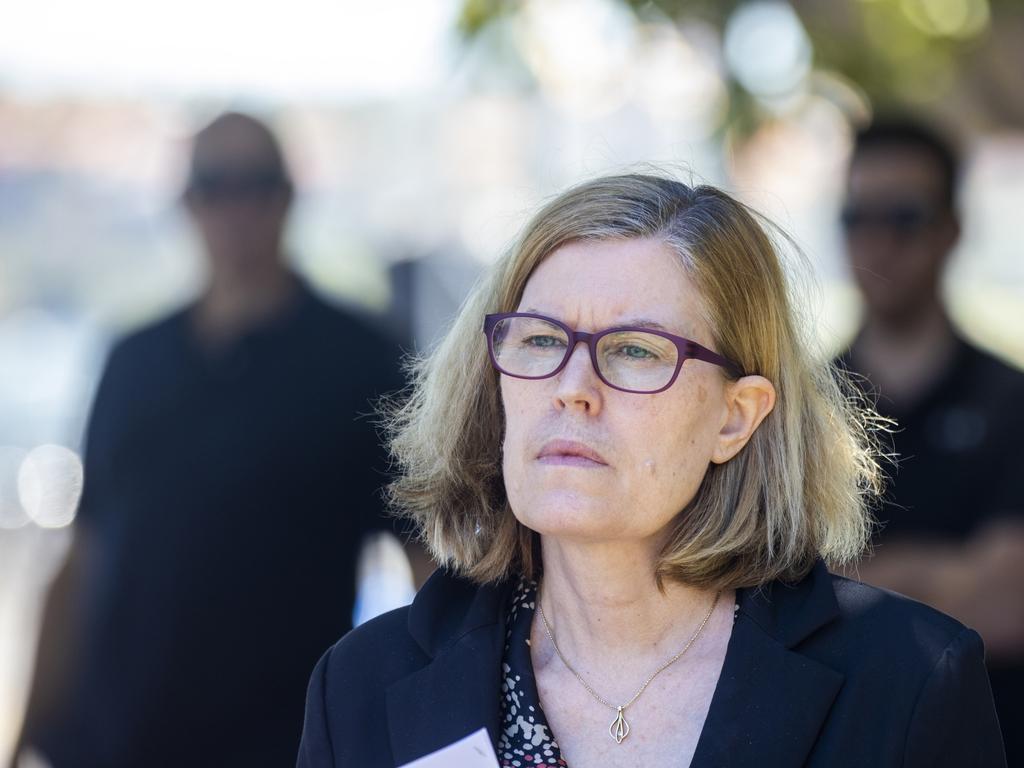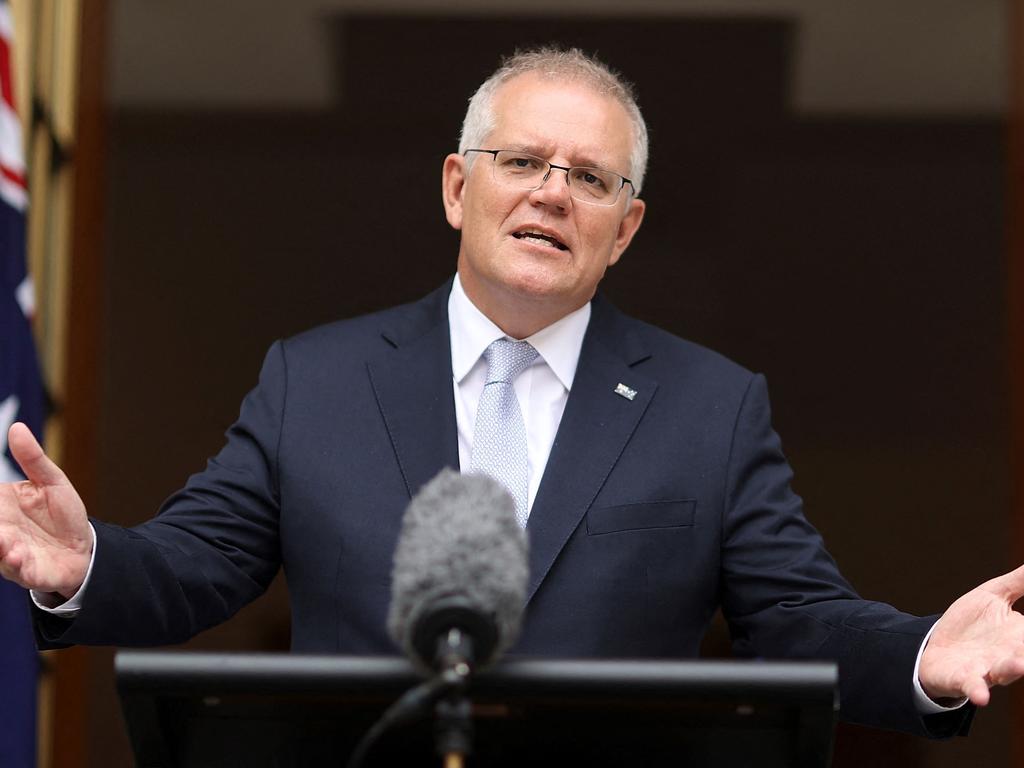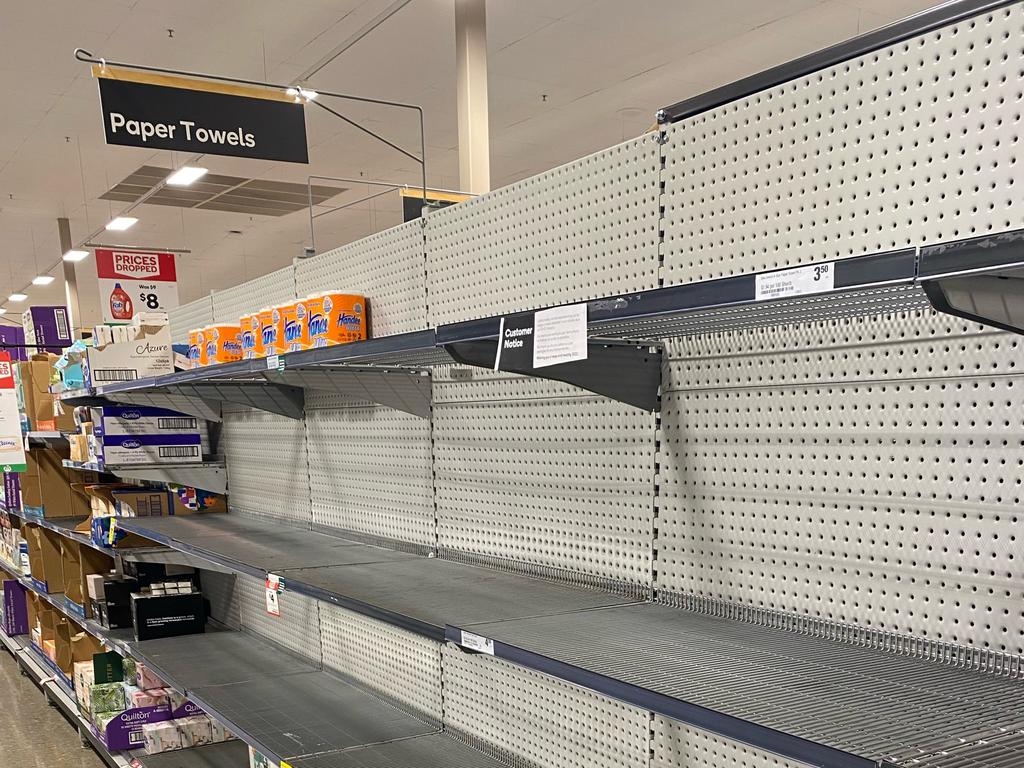Isolation rules relaxed for critical workers in NSW and Queensland as states battle supply chain issues
Queensland has joined NSW in signing off on major changes to isolation rules in a bid to fight workforce shortages.
NSW and Queensland have changed their close contact rules for food logistics workers in a bid to fight supply chain issues that are leaving some supermarket shelves bare.
Employees in the food logistics, manufacturing, transport, postal and warehousing sectors will be able to leave quarantine to attend work in NSW if they have no symptoms.
NSW Health announced the new rules on Sunday morning after chief health officer Kerry Chant signed off on the changes.
Speaking to reporters in the afternoon, Queensland Health Minister Yvette D’Ath confirmed a similar shift in her state.
“We know that timing is everything here. We have empty shelves in supermarkets right now,” she said.
“Once they receive a negative Day 6 RAT result they can continue going about their normal routine without the additional requirements.”
Eligible critical industries in Queensland include health, emergency services, the resource sector, power and utilities, agriculture and fisheries production, freight and logistics, public transport and essential retail like supermarkets and stores in remote locations.
Teachers and workers in major manufacturing, distribution and critical supply chains like food and petrol are also eligible.
Ms D’Ath said critical staff would need to be identified by their employers and would only be allowed to go to work if they were fully vaccinated, wore a mask at all times and avoided public transport.
While they can go to work if they are a critical worker, they must continue to follow all other quarantine requirements.
In a statement, NSW Health said its workers would only be eligible to leave self-isolation if their employer determined their absence posed a high risk of disruption to the delivery of critical services or activities.

These workers must be unable to work from home, must wear a mask and comply with risk-management strategies put in place by their employer, including daily rapid antigen tests.
Any worker who tests positive or who develops symptoms of Covid-19 must self-isolate.
The health department said the exemption from isolation rules for close contacts would also apply to critical emergency services employees who can’t work from home.
Prime Minister Scott Morrison had already tightened the definition of close contacts in a bid to reduce the pressure on workplaces caused by staff having to quarantine.
Following a meeting with state and territory leaders at national cabinet, the Prime Minister said people would only be considered close contacts if they lived in the same house as someone with Covid-19 or spent more than four hours with them.

People who are deemed close contacts must isolate for seven days – 10 days in South Australia – from the last time they were in contact with that person.
National cabinet will meet again this week where workforce shortages and furloughing pressures are expected to be discussed.
Australia’s Omicron-fuelled coronavirus wave, which passed 500,000 active cases on Sunday, has caused supply chain issues across the country as essential workers have to isolate.
Western Sydney Minister Stuart Ayres said the new rules would come into effect immediately in his state.
“That’s about shoring up our food distribution, food manufacturing supply chains, to make sure that all of those things that we see in our supermarkets and across the general economy can continue to function,” he told reporters on Sunday.
“We’ve always said that we will pivot and we’ll adapt to the conditions that are before us and that’s exactly what we’re doing today.”
Mr Ayres said there was no doubt the next few weeks would be “immensely challenging” for hospital staff but there was relief in sight.
“We are reaching the peak of this Omicron variant and this wave and so we really do need to be able to tough out these next few weeks,” he said.

Australian Food and Grocery council chief executive Tanya Barden welcomed the announcements made in NSW and Queensland.
“The challenge is going to be that in the short term we still need to have access to rapid antigen testing in order for this proposal to make a difference. We’re continuing discussions with government and other parties on that,” she told NCA NewsWire.
“We strongly urge other jurisdictions to adopt the same approach as a matter of urgency.”
Ms Barden said the supply chain had been affected across the nation and industry leaders were trying to find the right balance between health needs and community access to essential supplies.
“The problem has been across the board, but the challenge is that most of the food production in Australia comes out of Victoria, NSW and Queensland, which is also where the cases are the highest,” she said.
Read related topics:Brisbane



